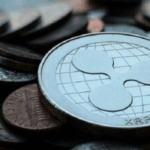The rise of blockchain technology has increased the demand for proficient blockchain developers. This guide has all the information you need to become a blockchain developer.
What is Blockchain?
A blockchain is a distributed ledger technology (DLT) that records transactions across multiple computers. It guarantees the security, transparency, and immutability of data involved in these transactions.
While its main use may be in cryptocurrencies like Bitcoin or Ethereum, this innovation can benefit many other industries, such as finance, healthcare, and supply chain management.
Key Components
- Decentralized – Unlike centralized, traditional databases, each node stores some part of the entire database here.
- Transparency—Visibility ensures accountability among participants by ensuring that each transaction can be traced back to its originator or recipient(s).
- Immutability—Once recorded, no one can change anything about any particular transaction because everything becomes permanent and public forever after block confirmation.
- Consensus Mechanism – These protocols ensure agreement on blocks’ state between different nodes within the network while attacking a common enemy called a double-spending problem.
Why should I become a Blockchain Developer?
High Demand and Good Pay
Blockchain programming experts are highly sought after in various industries since the adoption rate grows daily. Professionals report that individuals with such skills command hefty salaries due to their rarity and the specificity required for success within this field.
Many Opportunities Available
Different sectors currently adopt distributed ledger technologies, thus creating a wide range of job vacancies where developers could comfortably fit in without feeling out of place; some examples include but are not limited to, the banking sector, the healthcare industry, supply chain management firms, real estate companies, etcetera.
Revolutionary Technology
This technology is at the forefront of global innovations. Being part of the developers’ community means dealing with the most advanced tools ever invented. These tools radically modify how information is stored, and transactions are conducted forever.
“What Do I Need To Know Before Starting My Journey As A Blockchain Developer?”
Education
While not always necessary, having a background in computer science or related fields can be advantageous in the long term.
There have been instances where people without formal qualifications have become successful blockchain programmers. However, industry leaders still recommend that those interested in pursuing careers in this field consider obtaining relevant degrees, such as:
- Computer Science
- Software Engineering
- Information Technology
Skills Required
Programming Languages
- Solidity: This language is mainly used to create smart contracts on the Ethereum platform.
- JavaScript: You will require this language while developing web applications which can interact with blockchains directly or indirectly.
Python: Many people love using Python for scripting and automation, making it even more popular when discussing blockchain development. Also, since it’s widely utilized, there shouldn’t be any problems finding necessary support whenever needed.
C++ is known for its efficiency in performance issues. Therefore, it is often employed while designing various protocols related to digital asset systems, whose primary aim remains decentralization through distributed ledgers, like what happens within the Bitcoin network, for instance.
Cryptography
One must understand basic cryptography to become a good programmer working around blockchains. These include but are not limited to the following:
– Hash functions
– Public and private key encryption
– Digital signatures
Data Structures & Algorithms
Optimizing operations within this space requires a robust understanding of algorithms coupled with data structures; hence, one must prioritize them while studying anything related to blockchain programming. Some examples include hash tables, linked lists, binary trees, etc.
Smart Contracts
“Before you do anything else, make sure you understand what they are all about. Most likely, someone will ask you about this at some point. Solidity is currently the most commonly used language for writing them, so take some time to familiarize yourself with its syntax.”
Fundamentals
A good foundation in blockchain technology is necessary before commencing development work. Some of the basics that you should know are:
– Blockchain Architecture – How blocks get structured and linked.
– Consensus Algorithms – How agreement among different nodes within a network is reached.
– Decentralized Applications (DApps) – programs or applications that run on top of blockchains
Start by mastering the fundamentals of blockchain technology. Many online courses, tutorials, and books can provide a good foundation for understanding blockchain technology. Some recommended resources are “Mastering Bitcoin” by Andreas M. Antonopoulos and Coursera and Udemy courses on blockchain and cryptocurrencies.
Step 2: Grasp Programming Languages
Concentrate on learning programming languages commonly used in developing blockchains. Solidity is necessary for Ethereum-based development, but Python, JavaScript, and C++ are significant.
Step 3: Comprehend Blockchain Platforms
Get acquainted with popular blockchain platforms. Each platform has its unique features and use cases. Some of the critical platforms include:
- Ethereum: Known for smart contract functionality.
- Hyperledger Fabric: An open-source enterprise-grade blockchain framework.
- EOS: Designed for DApp development with scalability in mind.
- Polkadot: Facilitates interoperability among different blockchains.
Step 4: Obtain Practical Experience
Hands-on experience is essential when dealing with any technology; blockchains are no different. Start working on small projects, then gradually move to more complex ones. You can do the following:
- Develop Smart Contracts: Write your smart contracts and deploy them on Ethereum.
- Build DApps: Create decentralized applications which interact with smart contracts.
- Participate in Hackathons: Join blockchain hackathons where you solve real-world problems while collaborating with other developers.
Step 5: Investigate Advanced Topics
Once you have a strong foundation, go deeper into advanced topics like:
- Layer 2 Solutions: Look at technologies enabling scalability improvement and transaction fee reduction.
- Interoperability: Find out how cross-chain communication works, i.e., how different blockchains can interact.
- Decentralized Finance (DeFi): Learn about DeFi principles and how to develop DeFi applications.
Tools and Frameworks for Blockchain Development
Development Frameworks
- Truffle: Popular Ethereum development framework that provides a suite of tools for innovative contract development.
- Hardhat: Development environment for Ethereum, which makes building and testing DApps easier.
- Embark Another Ethereum framework that supports DApp development, testing, and deployment.
Integrated Development Environments (IDEs)
- Remix: Web-based IDE for writing, testing, and deploying Solidity smart contracts.
- Visual Studio Code: A versatile code editor with Solidity and blockchain development extensions.
Libraries
- Web3.js: JavaScript library which allows interaction with the Ethereum blockchain.
- Ethers.js: Lightweight JavaScript library for interacting with the Ethereum blockchain.
- PyEthereum: Python library for Ethereum blockchain development.
Testing Tools
- Ganache: Personal blockchain for Ethereum development that enables you to test your DApps in a safe environment.
- MythX: Security analysis service for smart contracts that helps identify vulnerabilities.
Building a Portfolio
Showcase Your Projects
Create a portfolio that showcases your blockchain projects. Include descriptions, technologies used, live project links or repositories. Some projects you could showcase include:
- Smart Contracts: Show off your ability to write and deploy smart contracts.
- DApps: Highlight any DApps you have developed and show what they can do regarding functionality and user interface experience (UI/UX).
- Digital Platforms for Discussion: Engage in conversation on sites such as Stack Exchange, Reddit, and dedicated blockchain forums.
- Social Media: Follow and interact with thought leaders via popular platforms like Twitter and LinkedIn.
Employment Possibilities within Blockchain Development
Jobs
The following roles are available to those pursuing a career in blockchain development:
- Blockchain Developer: Tasks include working with smart contracts and creating blockchain protocols.
- DApp Developer: Concentrates on building decentralized applications.
- Blockchain Architect: Design solutions based on blockchains while supervising their implementation.
- Blockchain Consultant: Offers advice to organizations regarding blockchain strategies or adoption processes.
- Competent Contract Developer: Solely focuses on writing and deploying smart contracts for various purposes such as voting systems within governments or supply chain management systems, etcetera…
Sectors
There is no shortage when it comes to industries that need people knowledgeable about blockchains; some potential areas are as follows:
- Finance & Banking – payment gateways, remittances services
- Healthcare – electronic health records (EHR) management systems
- Supply Chain Management (SCM) – transparency enhancement between stakeholders along the value chains
- Government – land registries, public service records management, etc.
- Real Estate – property transactions authentication methods etcetera…
Keeping up-to-date
Continuous Learning
“Given that technology never stops advancing, continuous learning is crucial to staying relevant and competent. To keep pace with these changes, here are some critical areas worth investing time into:”
- New Consensus Mechanisms: Stay current with all new consensus algorithms together with their peculiarities;
- Regulatory Changes: Understand any changes made by authorities concerning laws governing cryptosystems, including blockchain technologies generally;
- Emerging Technologies: Be familiarized themselves with how artificial intelligence (AI) can work hand in glove with the Internet of Things (IoT), among other innovations intersecting with distributed ledgers like blockchains, etc.
Resources for Continuous Learning
- Online Courses: Platforms such as Coursera, Udemy and edX offer a wide range of advanced blockchain courses.
- Books: Read books by industry experts to gain deeper insights into the subject matter.
- Blogs & News Websites: Follow reputable blockchain blogs or news sites that will keep you informed about recent developments within this space;
- Podcasts/Webinars: Listen to or watch various podcasts or webinars where experts share their knowledge about different aspects related to blockchains, etcetera…
In Conclusion
One must have technical expertise and hands-on experience to succeed as a blockchain developer.
Mastering programming languages like Solidity, C++, and Python and working on real projects are crucial.
Building networks and staying updated as new ideas emerge daily is essential. Although positions are currently limited, it’s vital to retain them as more opportunities will arise soon. Continuous self-improvement is necessary to remain valuable in this evolving industry.
FAQs
What does it mean to be a blockchain developer?
A blockchain developer is a software engineer who creates applications using the distributed ledger system, including building decentralized apps (dApps), writing smart contracts, and designing blockchain infrastructure.
Which abilities should someone have if they want to become a blockchain developer?
Candidates for this position should be proficient in Solidity for Ethereum, JavaScript for scripting, and Python for backend development. They should also have a good understanding of cryptography principles and be familiar with platforms like Bitcoin.
Do you need an educational background to work as a Blockchain Developer?
While formal education in computer science or software engineering may be advantageous for becoming highly skilled for success within this profession, there are no complex requirements. Many individuals enter this field through self-learning and other avenues.
What programming languages should I learn when getting started with blockchains?
Remember these languages: Solidity for Ethereum smart contracts, JavaScript for dApp development, Python for scripting and backend development, and Go for Hyperledger projects.
How do I start my journey to learn how to code on top of blockchains?
“You could start by taking online courses from platforms like Coursera, Udemy, or edX, and exploring free resources like Ethereum and Bitcoin documentation.”
How would you define intelligent contracts, and what makes them significant to blockchain developers?
Smart contracts are self-executing contracts written in code that enforce contract terms automatically without intermediaries. They are essential for many blockchain applications, especially on platforms like Ethereum.
Can you name a few well-known blockchain platforms?
Some popular blockchain platforms are Ethereum, Hyperledger Fabric, Bitcoin, and Polkadot.”
What tools do people commonly employ for the development of blockchains?
Truffle (Ethereum’s development framework), Remix (an online IDE used for developing smart contracts), Ganache (a local blockchain designed for testing), and MetaMask (a browser extension that lets users interact with Ethereum) are some examples of widely used tools for developing blockchains.









